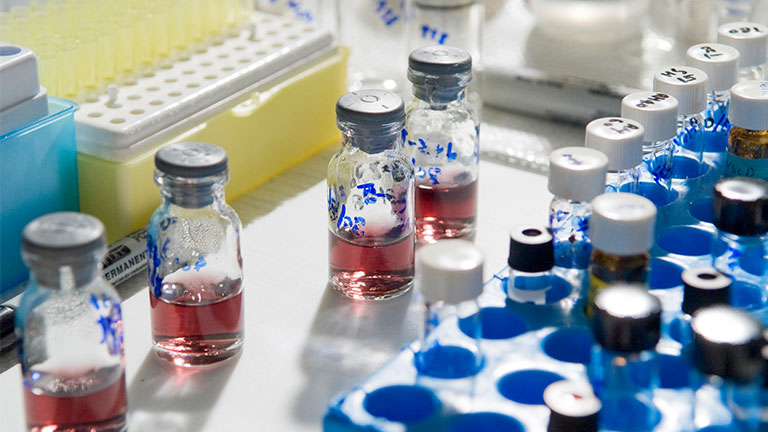Scope
- Pharmaceutical Chemistry
- Pharmaceutics
- Pharmacology
- Pharmacognosy
- Pharmacy Practice
Pharmaceutical chemistry is the backbone of pharmacy. It includes organic chemistry, biochemistry, analytical chemistry and medicinal chemistry. The highly knowledgeable pharmaceutical chemists plays a crucial role by interacting with scientists of other disciplines, such as molecular biology, structural biology, pharmacology, physical chemistry, biochemistry, pharmacokinetics, pharmaceutical technology, toxicology or with experts from the field of translational medicine, etc. The medicinal chemistry is concerned with the drug designing and synthesis of biologically active molecules. The main domains of Pharmaceutical chemistry is the drug designing; stability, method development, validation and quality control of drugs.

Pharmaceutics is the art and science of preparing and dispensing drugs and medicines. The subject Pharmaceutics is associated with all the stages that follows the discovery or synthesis of the drug, its isolation and purification, and testing for advantageous pharmacological effects and absence of serious toxicological problems. It deals with the formulation of a pure drug substance into a dosage form. In simple word we can say– “pharmaceutics converts a drug into a medicine”. The main subject covers Physical Pharmacy, Dosage Form, Community and Dispensing, Forensic, Biopharmaceutics, Industrial and Pharmaceutical Technology.
Pharmacology is the science of drugs and their effect on living systems. It is the science explaining as to what is happening to your body and to the drug action itself. It involves looking at the interaction of chemical substances with the systems in our bodies, as well as identifying ways in which our biological systems affect drugs. Pharmacologists are medical scientists who devote their careers to developing new drugs and evaluating their safety and effectiveness. Pharmacists, who dispense medications
The study of crude drugs of plant and animal origin. Pharmacognosy specialized in the authentication and quality, as evaluated macroscopically and microscopically, of crude drugs that were mainly of plant origin. Heinrich et al., 2004, stated that it is the science of biogenic or naturally derived pharmaceuticals and poisons. It deals with medicinal plants as crude herbs or extracts, pure natural compounds and foods having health benefits. Research in pharma cognosy includes phytochemistry, microbial chemistry, biosynthesis, biotransformations, chemotaxonomy and other biological and chemical sciences. In the past 50 years, the focus is made on phytochemistry and biological activities of natural products.
The “Practice of Pharmacy” means the interpretation, evaluation, and implementation of Medical Orders; it includes more traditional roles such as compounding and dispensing of medications, participation in Drug and Device selection; Drug Administration; Clinical Services, Reviewing Medications for safety and efficacy, and providing drug information; the Practice of Tele pharmacy within and across state lines.
Scope:
Government Sector
He can establish his Career As Hospital Pharmacist in all most all Government
sector hospitals
Drug Testing Laboratory
Forensic Science
DRAP
Teaching
Drugs Inspector
Clinical Pharmacist
Private Sector
Research institutes
Teaching institutes
Retail pharmacy
NGOs
Pharmaceutical industry
Nutra-ceutical Industry
Cosmetic Industry
Marketing Sector
Distribution Sector
Supply chain
Abroad
He can registered his Self as practicing Pharmacist in Different Countries by
attempting its test
Canada
America
Australia
United Kingdom
Norway
Middle East

